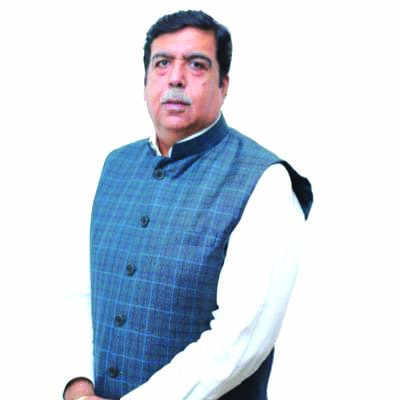
Autar Nehru (Delhi)
If parents and students in India experienced the world’s most prolonged lockdown of schools during the Covid-19 pandemic, the national capital’s citizens claim they experienced the longest schools’ lockdown within India. Now with Covid-19 reduced to a mere epidemic, it’s official that Delhi’s 5,500 K-12 schools which educate 4.5 million children, will restart on-campus, in-class normative schooling on April 1 which also marks the start of the traditional academic year. This announcement was made by the Delhi Disaster Management Authority (DDMA) following a meeting on February 25.
On February 14, DDMA had permitted schools to reopen partially to provide hybrid learning in classes K-VIII and normative in-person education to children in classes IX-XII. DDMA’s February 25 pronouncement ends the on-off uncertainty that had disrupted children’s education since the national lockdown was announced on March 25, 2020. In January 2021 after ten months of closure, Delhi’s schools were permitted to reopen partially for hybrid classes (online and on-campus with 50 percent of children attending on alternate days), and again in November-December. But only for a few weeks before the Delta and Omicron variants of the virus forced reclosure.
Although the resolute announcement of resumption of normative schooling from April 1 has been welcomed by teachers, parents and students, private schools would have been happier if schools had been fully reopened a month earlier — from March 1. Currently, while children are learning in the online and hybrid modes, schools are obliged to obtain parental consent for students attending on-campus classes with parents having the choice to opt for exclusively online education. This has imposed a double load on teachers.
Anxious to get schools started in right earnest, the Action Committee of Unaided Private Schools, an association representing 2,000 schools in Delhi NCR has written to Anil Baijal, the Central government-appointed Lieutenant Governor of Delhi and DDMA chairman, to begin normal on-campus school from March 1 as it will give students and parents more time to find their bearings before the new academic year. Simultaneously, the National Progressive Schools Conference (NPSC) has also written to the LG requesting an order ending the hybrid option for parents and students. “Parents are reluctant for offline assessment while online classes are allowed. Also, we are facing problems in teaching as online and offline classes are allowed,” wrote Sudha Acharya, chairperson, NPSC in a letter to the LG. Her argument is that the prolonged lockdown of two years has taken a massive toll on the mental and physical well-being of children in all age groups. Therefore, it’s in the interest of students to begin normal schooling immediately.

Another major demand of private schools is to extend the life of school-owned buses which is restricted to 15 years under the Motor Vehicles Act, 1988. According to private school associations, two extra years should be added to the registration date because their buses have been moth-balled for almost two years. Moreover, road taxes should be waived as the buses didn’t ply. “These vehicles are in perfect condition and meet all environmental and pollution emission norms. Their engines are in good shape as they were parked safely on school grounds from March 2020 till today. Extending registration of these buses will save us the considerable capital expenditure of purchasing new buses,” says Bharat Arora, general secretary, Action Committee of Unaided Private Schools, including budget private schools.
Meanwhile, with in-person classes officially scheduled to restart on April 1, non-minority private day school managements are grappling with the issue of admitting children of poor households in their neighbourhood under s.12 (1) (c) of the Right of Children to Free and Compulsory Education (RTE) Act, 2009. Since the Directorate of Education didn’t issue the annual nursery admissions notification in 2021, the backlog of admissions has doubled. As per the 2022-23 notification issued on December 14, 2021, the admission schedule is expected to conclude by March 31. However, the government has allowed a second round of applications under the EWS (economically weaker sections) category against vacancies based on pleas of activists.
Though it is hoped that schools in the national capital will finally return to pre-Covid normalcy, managements, students, parents and teachers need to focus on ways and means to bridge the massive learning gap children have suffered during the unprecedented pandemic which is hopefully, finally behind them.
Also read: Maharashtra: Mixed response on first day of school reopening























